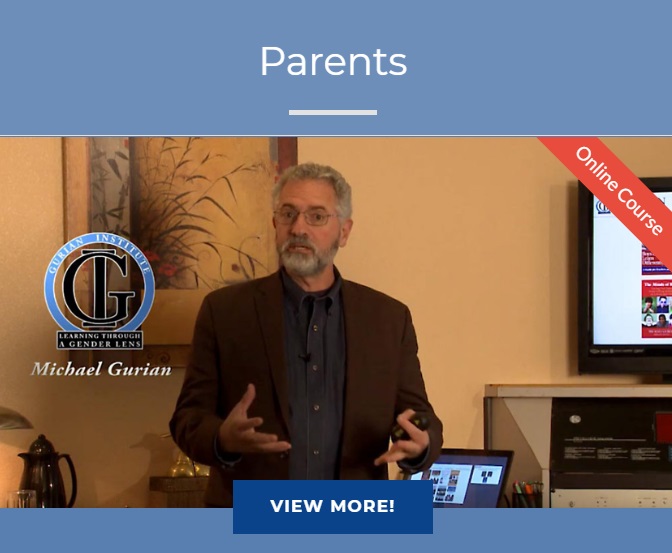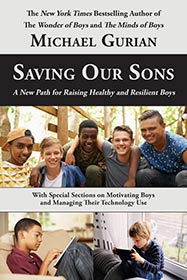I was speaking at a conference recently on girls’ development. I had been asked to talk about what will make girls most successful in the future. Because the conference organizers knew that I have done a great deal of gender work in corporations, they asked me to talk about “girls and maturity,” and “how girls can succeed in the future as leaders.”
During my lecture I told a story about a time, while raising my own daughters, that one of them, 15 at that time, was headed out to a party. She wore a top so revealing I could see the top of her breasts to just above the nipple. “I told her she was being inappropriate,” I told the audience, “and putting herself in danger especially because there would likely be alcohol at the party. She and I debated for a while, then she changed her clothes.” I believe I did my job as her father, protecting her by helping her to think about her clothing not just in the moment but in life in general.”
After talking about this I asked the audience: “How do you feel about what I did? Do you agree with my course?” Most voices called out, “Yes,” but a few vehemently called out, “No!” I invited these people to come find me after my keynote at my booth. “Let’s argue about this,” I invited, “I love a good argument.” There were chuckles in the audience and I continued my presentation then moved to the booth where two young women, Marissa, 28, and Dana, 29, found me after the book signing. Marissa said, “First of all, we don’t want to argue with you. We teach our girls to discuss, not argue. We want to build a cohesive and friendly community. So let’s not argue, let’s discuss.”
I responded honestly. “Thank you for letting me know but if you’re afraid to teach healthy argument to girls, then aren’t you afraid of something and passing that fear on to the girls? I can tell from your faces that you want to argue with me and I want you to know I am fine with that.”
“No,” she insisted, “I don’t want to argue. Just the opposite: arguments can hurt feelings and we want our girls to feel comfortable.” I asked her where she taught. She said she and Dana taught at a girls’ school but had previously taught at a coed school and felt this way in any setting that taught girls.
I said, “I guess we just disagree here. It seems to me by holding the stance you’re holding you’re feeding right into the very thing the corporations are asking us to stop doing with girls: raise them in a bubble. The workplace needs women (and men) to be able to argue and hold their own in a complex adult environment.”
These two young women shook their heads in disagreement but then we moved to an area that gave them even more discomfort. Dana said, “We disagreed with your position on the way your daughter dressed. You as a man have no right to tell a woman how to dress. Thinking otherwise puts you, in our view, in the same camp as guys who blame the victim for rape.”
At this point my daughter, Davita, then 22, came up to us (I was speaking in the city she lived in and she had come to pick me up so we could hang out together). I gave her a hug and introduced her to the two women and caught her up on our discussion. Then to Dana I said, “Again, I disagree with you. Rape is a crime, it’s a violent act. If someone rapes my daughter, it will be a criminal matter targeting that person’s mental illness and his violent act. It will not be about how my daughter is dressed, so no, of course not, I would not blame the victim.”
“But still,” Dana insisted, “You’re taking away your daughter’s independence and empowerment by telling her how to dress.”
“I’m the dad,” I said, “she’s the child. My job is to help her develop a strong and socially adept self-image and self. At 15, most of what she does is indeed done independent of me, but some things still need my input.”
Davita concurred. “Why wouldn’t he say what he said? Are you saying that the girl has no responsibility for anything? She can do whatever she wants, no matter what? She can dress or say whatever she wants?”
Marissa said, “It’s not her responsibility to make sure guys don’t look at her breasts–it’s the guys’ responsibility not to look at her breasts. So, no,” she reiterated, “I would not tell her to change her clothing. She is in control of her self-image, not you. I would empower her to make her own decision. He—“ (pointing to me) “wants to disempower her, he is imposing his patriarchal dominance over her.”
“I guess I’m patriarchal, too, then,” Davita said acerbically. She was definitely in “fight mode” with these peers and I smiled at this interchange, loving it for its energy and acumen, but then I re-entered it by saying to Marissa and Dana: “Actually, I don’t see my position as patriarchal and disempowering, I see it as both biology-science-based and very empowering.
“If a fifteen-year-old girls is dressed in a sexually provocative way, a way that says, ‘come have sex with me’ then gets drunk then a peer male (or older male) also gets drunk, there is a biological likelihood that the limbic parts of those brains will do and say things the frontal cortices of both female and male may later regret. To mentor a girl in physical/social appropriateness and personal safety is absolutely empowering to her—it helps mature her into a healthy adult. To not do so—to risk, for socio-political reasons—her being assaulted at a party is not empowering at all. It could terribly affect her life. It is always better to err on the side of caution when we are dealing with alcohol, drugs, and biology.”
Marissa said, “I have to stop talking with you. You are giving me a really uncomfortable feeling.” She touched her stomach, rubbed it, and Dana agreed: “Congratulations for speaking up, Marissa. I feel the same way.” To me she said, “We teach our girls how important it is to speak up right away when someone makes them feel uncomfortable.”
I paused here, taking this in, then shook my head again. “Look, I’m sorry, but while I’m glad you told me you feel uncomfortable, I disagree with two things you said right there. One, you put the onus on me for your discomfort yet I’ve done nothing wrong. In doing that, you are able to take your internal awareness off of yourself, which is a first bad idea, I think, but secondly, it generates blame towards me.
“That is the very thing corporate leaders are wishing we would stop doing with millennials and younger kids: teaching them to take things personally, blame other people for their feelings, then create dramas, internal or external, around their blame and those feelings. Relationships gets paralyzed and people overreact to every little discomfort.
“And that’s the second thing I disagree with. Truly, friends, I beg you to not focus on telling adolescent girls that there’s something inherently wrong with feeling uncomfortable. Actually, from a nature-based standpoint, discomfort is generally natural and useful to child development.
“Obviously, if a child or adult is in danger of violence she or he must call attention to the discomfort and marshal forces against the person causing that, and among little children, ‘feeling uncomfortable’ can be a crucial key word to stop sexual abuse, but among adolescents and adults, our culture must titrate away from over-reliance on ‘discomfort’ (and blaming others for our own feelings) if we want adolescents to become fully mature adults.”
My point did not sit well with Marissa and Dana who reiterated that “feeling uncomfortable” was the gold standard of what they should teach girls to use as “a female empowerment principle.” I kept responding with things like, “Feeling uncomfortable is how we learn and grow,” and “your position is not based in any known science, the brain needs discomfort in order to mature,” but in the end, the argument that day ended with Marissa saying, “You’ve hurt my feelings, you’re just another patronizing and disempowering man,” and we parted ways.
At dinner that evening Davita told me: “Dad, I’m glad they weren’t my teachers.”
“Why?” I asked her.
She said, “Because they’re just teaching girls to be fragile little creatures. It’s the exact opposite of what girls should learn.”
She made me a proud papa that day!
I tell this story in the hope that we will continue to invigorate a diverse conversation on what girls need, one that is not only protective but also, from a science-based perspective, empowering. As we do this, let’s join together to help girls:
- feel uncomfortable when appropriate so that they look inward to understand why, and build new assets in response to this inward look;
- develop better boundaries and a stronger core-self as they emphasize self-growth rather than blame of others;
- fail during childhood so they must pick themselves up and by doing so learn new ways to be, grow, problem-solve, invent, and succeed while they are young;
- engage in profound differences between the way males and females feel their feelings and problem-solve (including becoming passionate, not afraid, arguers and debaters!);
- take very little personally anymore (unless they are in danger);
- learn to work together with diverse people, including highly competitive males and females.
The interaction with Dana and Marissa is not the only one I have had of this kind. While I do believe most people agree that human maturation is the most important goal of parenting I also find that some people don’t focus on maturation—they focus on other ideological goals such as “empowerment.” As a father of daughters and an advocate for girls, I support female empowerment as a social goal and am proud to see that that goal is being reached all around us. I hope we will all keep pursuing it.
But I also hope we will remember that “maturity” should be as important a key word as “female empowerment” or more important. “Empowerment,” to me, should be a subset of “maturation,” not the other way around because a girl can become an adult who is culturally empowered but very immature. No one wants that. We want strong daughters and strong women. Strength may require a deeper look into the human soul than “feeling uncomfortable” can allow.










